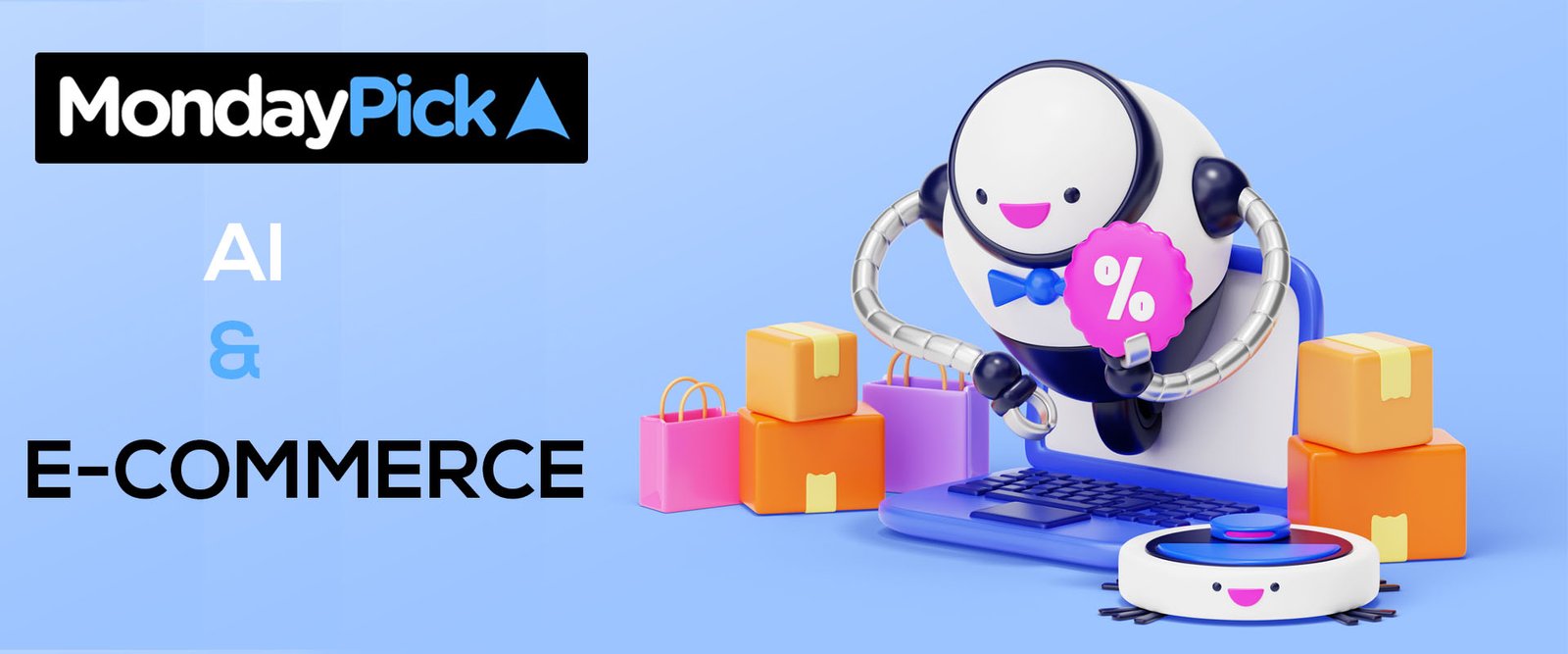Future of AI in Ecommerce
AI is set to significantly reshape the future of e-commerce in several ways, offering more personalized, efficient, and intelligent shopping experiences. Here’s a look at some key areas where AI is likely to impact e-commerce:
1. Personalized Shopping Experiences
- AI-driven Recommendations: AI algorithms analyze vast amounts of data, including purchase history, browsing behavior, and preferences, to provide personalized product recommendations. This increases the likelihood of conversions and customer satisfaction.
- Dynamic Pricing: AI will help in real-time price adjustments based on factors such as demand, competitor pricing, customer segmentation, and even time of day, optimizing profitability.
- Personalized Marketing: AI tools like machine learning and predictive analytics can create highly targeted marketing campaigns, with personalized emails, product suggestions, and ads based on user behavior.
2. AI Chatbots and Virtual Assistants
- 24/7 Customer Support: AI chatbots will handle routine queries and help guide users through the buying process, providing instant assistance at all hours, reducing human workload.
- Product Discovery: Virtual assistants will help customers find what they’re looking for by asking questions and suggesting products, simulating the experience of a physical store assistant.
- Conversational Commerce: With the integration of AI, users will be able to shop directly through messaging platforms or voice-activated assistants like Amazon Alexa or Google Assistant, leading to a more conversational shopping experience.
3. Supply Chain and Inventory Management
- Demand Forecasting: AI systems will analyze historical sales data, trends, and market conditions to predict demand, helping retailers optimize inventory levels and reduce overstock or stockouts.
- Automated Warehousing: AI-powered robots will be used for picking, packing, and sorting products in warehouses, making logistics more efficient and reducing human errors.
- Real-time Tracking: AI can improve the tracking of shipments, alert customers of delivery times, and optimize shipping routes for quicker, more efficient deliveries.
4. Visual and Voice Search
- Visual Search: AI will enable customers to take a picture of a product or upload an image to find visually similar items in an online store, improving the ease of discovering specific products.
- Voice Search: As voice recognition technology improves, more customers will use voice search to find and purchase products. E-commerce platforms will need to optimize for voice queries and responses, creating a more interactive shopping experience.
5. Fraud Detection and Security
- Fraud Prevention: AI can detect fraudulent activities by analyzing transaction patterns in real-time and flagging suspicious behavior before it leads to chargebacks or financial losses.
- Enhanced Payment Security: AI systems will continue to improve the security of payment processing by detecting anomalies and verifying customer identities using biometric data.
6. Hyper-Personalization through Data Insights
- Behavioral Analytics: AI tools can analyze customer behavior not just on-site, but across multiple platforms, providing e-commerce businesses with a deep understanding of customer preferences and enabling hyper-personalization in product recommendations, ads, and even homepage layout.
- Customized Interfaces: AI can dynamically alter website design, product displays, and offers based on the individual user’s preferences, resulting in a unique shopping experience for each visitor.
7. AR and VR Integration
- Augmented Reality (AR): AI-powered AR will allow customers to virtually “try on” clothes, makeup, or even furniture in their homes before making a purchase, improving customer confidence and reducing returns.
- Virtual Reality (VR): Immersive VR shopping experiences could enable users to explore virtual stores, interact with products in a virtual environment, and make informed purchasing decisions.
8. Sustainability and AI
- Smart Supply Chains: AI can make supply chains more sustainable by optimizing routes, reducing energy consumption, and minimizing waste.
- Eco-friendly Choices: AI could also help consumers make more sustainable shopping decisions by highlighting eco-friendly products or tracking the carbon footprint of their purchases.
9. Automated Content Creation
- Product Descriptions: AI tools like natural language generation can automatically generate product descriptions, meta tags, and reviews, reducing the workload for e-commerce businesses while maintaining accuracy and consistency.
- Social Media Integration: AI will enable brands to create and schedule social media content based on trending topics, customer preferences, and engagement metrics, keeping brands relevant and engaging.
10. AI-Driven Analytics
- Real-time Insights: AI will help businesses gather real-time insights from massive datasets, enabling faster and more accurate decision-making regarding sales, marketing, inventory, and customer experience.
- A/B Testing Automation: AI can automate the A/B testing process, learning from customer responses and optimizing campaigns more effectively than traditional manual methods.
The Future of AI in E-commerce
As AI technologies continue to evolve, we can expect even more sophisticated tools that will blur the line between physical and digital shopping, providing seamless, engaging, and highly personalized customer experiences. AI’s ability to understand and anticipate customer needs will be pivotal in shaping the future of e-commerce.
